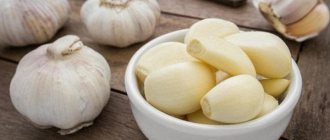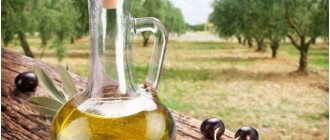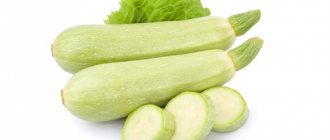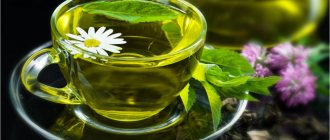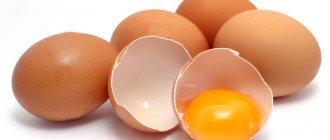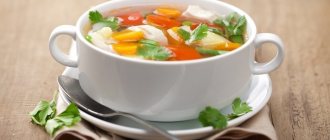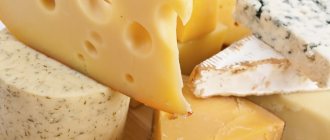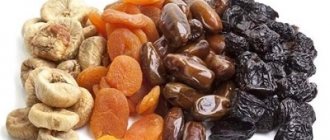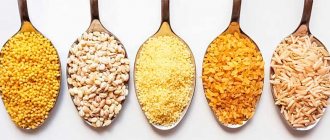Onion is a spicy aromatic plant that is widely consumed in Russia.
The family of this vegetable is distinguished by great species diversity. As many as 228 species of cultivated and wild onions are edible and used in cooking. However, there is an opinion that onions for gastritis are a difficult product for digestion, and it is better for people with a sick stomach to forget about them. In reality, everything is not so simple, although there is some truth in this statement.
"Bow of the Seven Ailments"
This saying very accurately characterizes the healing effect of vegetables on the body. The positive effects of onions can be combined in a long list:
- wound healing;
- antiseptic effect;
- strengthening immune defense;
- reducing the severity of inflammation;
- stimulation of secretory and motor functions of the gastrointestinal tract;
- treatment of iron deficiency anemia;
- improving the functioning of the heart and blood vessels;
- reduction of cholesterol and glucose levels in the blood;
- therapy of skin diseases;
- diuretic effect;
- dilation of the bronchi.
Such a diverse effect on the human body is due to the content of high concentrations of vitamins (A, C, E), minerals (sulfur, iron, zinc, potassium, fluorine), phytoncides, and bioflavonoids.
However, there is still a fly in the ointment. Phytoncides and essential oils significantly irritate the gastric mucosa and stimulate the production of hydrochloric acid, so in case of diseases of the upper digestive tract, special care must be taken with onions. In addition, consuming vegetables in large quantities can negatively affect the condition of the kidneys and liver, so people with pathologies of these organs are advised to eat onions in doses.
Is it possible to eat raw vegetables?
Any irritating substances are prohibited in acute forms of inflammation, when a gentle diet is prescribed.
For atrophic gastritis, raw onions are also unsafe. The atrophied mucosa is very sensitive and reacts more strongly to the effects of phytoncides by increasing the inflammatory reaction. Against the background of increased acidity and erosive gastritis, stimulation of the secretion of acidic gastric juice will only aggravate the situation and expand the area of damage.
The only variant of gastritis in which you can afford raw onions in moderation is hypoacid. The increased secretion of hydrochloric acid will just bring the pH of the gastric contents to average values, and a normally functioning protective barrier will not allow essential oils to provoke irritation. However, it is too early for patients with “forbidden” forms of inflammation to get upset. Fortunately, the light did not converge on raw onions; there is always the opportunity to replace it with a heat-treated analogue.
conclusions
In general, they are disappointing: only the baked form of the product is recommended for use with gastritis, which not everyone likes. All other forms of this vegetable (fresh, fried, boiled) have many contraindications, and onions are categorically unacceptable for gastritis with high acidity.
Important! If the taste of any dish without the addition of onions is unacceptable to you, you should consult your doctor about the possibility of including it in your diet: in some forms of pathology, you can still eat this vegetable in limited quantities, but only after undergoing a thorough examination of the gastrointestinal tract.
How to cook
There are many ways to prepare onion dishes. You just need to choose the most appropriate one for a particular type of gastritis. Boiled and stewed vegetables retain not only most of their medicinal properties, but also their ability to irritate the walls of the stomach. True, to a lesser extent than raw, so in hyperacid conditions it can be consumed in small quantities. But with severe atrophy or extensive erosion, it is not worth the risk.
Fried onions should be excluded from the diet for patients with any form of stomach inflammation. Increased fat content and the appearance of carcinogens in fried foods are not good for anyone.
But a baked onion is the most harmless delicacy. This product is approved for gastritis of all types. Interestingly, most of the irritating components are inactivated when baked, and the anti-inflammatory and antibacterial effects are preserved - such onions will even be useful.
Patients with gastritis should also not pickle onions Adding vinegar, salt and hot spices will only enhance the negative effect. Drying the vegetable will also not make it safer for the inflamed gastric mucosa; dried onions are allowed only for hypoacid forms of the disease.
Peculiarities. Some housewives mistakenly consider onions scalded with boiling water to be a more gentle and gentle product for the stomach. In fact, after such a short heat treatment, it is not much different from raw. This only allows you to destroy microbes and reduce bitterness.
Many people freeze onions to cook later. This option is quite possible if you follow a few recommendations:
- Before freezing, the vegetable needs to be cooked for about 5 minutes to destroy microbes, many of which are resistant to low temperatures.
- You need to let the water drain well so as not to freeze excess liquid.
- After the water stops draining, the onions are packaged in special freezer bags and placed in the freezer.
- Thawed onions can be further prepared according to the same rules as fresh ones.
Many traditional onion dishes are prohibited for patients with gastritis. For example, traditional onion soup, which contains a large amount of butter that is difficult to digest, or fried pies with onions and eggs, like any other dish that requires frying.
Introduction. Nutrition for gastritis.
Gastritis is “famous” for inflammatory processes in the gastric mucosa. This dictates the conditions of diets, which involve avoiding foods that can cause damage to the walls of the stomach or have an irritating effect.
With proper light nutrition, epigastric pain is preserved, the severity of the disease is reduced, pain is reduced, and immune status is increased. The optimal diet will be one that provides up to 3000 calories per day, provides up to 100 g of proteins and 100 g of fats with a predominance of both of animal origin and provides at least 400 g of carbohydrates.
Try to heat-treat foods, do not overeat, eat several times a day and remain a little hungry at the end of lunch so as not to overload the digestive system.
Unusual recipes for the diet menu
We will present several original recipes for baked onions, since this is what is allowed for all patients with inflammation of the stomach, regardless of its type.
Chicken roll in zucchini
Ingredients:
- 2 medium young zucchini;
- 600 g chicken fillet;
- 1 small bunch of wild garlic;
- 1 onion;
- 1 carrot;
- 2 tbsp. l. olive oil;
- salt to taste.
Action plan:
- Cut the wild garlic into thin pieces.
- Finely dice the onion, grate the carrots and add salt.
- We simmer them with the addition of 1 tbsp. l. olive oil until the juice evaporates.
- Cut the chicken into thin pieces and beat them.
- Place the chops on cling film in a rectangle, slightly overlapping, and add salt.
- Place wild garlic on top, leaving 2-3 cm from the edge.
- Place zucchini cubes, carrots and onions on top.
- Using film we form a roll.
- Cut the second zucchini into very thin long strips.
- Grease a narrow baking dish with olive oil and lay out the zucchini slices overlapping each other.
- Place the roll freed from the film on top and cover it with the free ends of the zucchini strips, grease with oil.
- Bake for about an hour at 180 degrees.
Stuffed onions
Ingredients:
- 1 kg minced beef;
- 1 egg;
- 11 onions;
- 50 g rice;
- 1 cup low-fat sour cream;
- salt to taste;
- 2 tbsp. l. olive oil.
Action plan:
- Wash the rice and soak it in warm water for a quarter of an hour.
- We clean the onion, cutting off the bottoms evenly, removing the middle from it, leaving 2 top layers.
- Finely chop or grind the middle parts of the onions in a blender.
- Mix them with minced meat, add egg, swollen rice, and salt.
- Fill the bulbs with filling.
- Grease a baking dish with olive oil, place stuffed onions on it, add a little sour cream on top.
- Cover the bulbs with foil and cook for about an hour and a half at 180 degrees.
Which type to choose - green, shallot or leek
The most widespread in our country is onion, which is grown almost everywhere, but even it is not limited to one species. In the garden beds you can find white, red, and sweet varieties. They differ in taste characteristics, as well as the concentration of vitamins and microelements. Other cultivated varieties of onions include green onions, leeks, and shallots.
There are also perennial plants - batun, chives, multi-tiered. Some species can be grown in the far north. Wild vegetables are also of interest: Rosenbach and Regel onions, wild garlic (flask).
In fact, all the rules of use described above are valid for the entire large onion family, since all of the listed varieties contain the same chemical components, and differ only in their ratio. For example, green onions contain more mineral salts than onions. Chives have a high concentration of ascorbic acid, and wild garlic has a high concentration of vitamin A.
Interesting! The Institute of Nutrition of the Russian Academy of Medical Sciences, based on many years of research, has established the norm for consumption of green onions - 2 kg per person per year. In Russia, this figure has not yet been approached: even the cultivation of vegetables does not exceed 0.5 kg per person, and most of the cultivated varieties are onions, not green onions.
Therefore, the onion variety for gastritis can be chosen according to taste preferences and medicinal properties, but remember that in its raw form the vegetable is allowed only at low acidity levels, and even then in very moderate quantities.
Side effects and contraindications
For all its usefulness, fresh onions are a product of pungent taste. Eating this vegetable in its natural form is not recommended for people with gastrointestinal diseases of any etiology . For gastritis in the acute stage, it is better to avoid raw onions in the menu, replacing them with boiled or baked ones.
Hypertensive patients should also treat onions with caution, since vegetables consumed in large quantities raise blood pressure . The strong onion smell can trigger an asthma attack.
Supporters of unconventional methods of treatment should be aware that prolonged contact of fresh onion juice with the mucous membrane can cause a burn.
How to avoid exacerbation
To top it off, here are a few tips on how to avoid attacks of pain and heartburn with gastritis:
- You need to eat in small portions, with an interval of 2.5-3 hours.
- Food should not be too cold or hot.
- It is better to completely avoid spicy, fried and fatty foods until recovery.
- Coarse fiber injures the walls of the stomach. Food should have a soft, enveloping consistency.
- Alcohol consumption, even light alcohol, is kept to a minimum. The norm is 20-30 ml in terms of alcohol.
- Nicotine consumption can lead to ulcers or gastrointestinal cancer.
- Taking any medications, including regular aspirin or painkillers, should be agreed with your doctor.
For gastritis, any diets other than those approved by the treating doctor are contraindicated. A balance should be maintained between carbohydrate and protein intake . A preponderance towards the latter will lead to a loss of strength and a decrease in mood.
When there is inflammation of the gastric mucosa, it is important to follow a diet. A person has to put up with a complete ban on fatty, smoked, canned foods, as well as some vegetables and fruits. But is it possible to eat onions with gastritis? After all, this vegetable is present in almost all dishes; many people like to eat it simply with bread. By adhering to a diet, the patient must saturate his body with useful elements. Onions are rich in biologically active substances: essential oils, flavonoids, minerals and vitamins. In what form and in what cases is onion useful, and when it should not be eaten.
If your stomach hurts
It happens that it is not possible to refuse a prohibited product. For example, when visiting or in a restaurant, when you don’t immediately realize that the salad or soup is richly flavored with onions. The stomach may react to a prohibited ingredient with pain, nausea, sour taste in the mouth, and heartburn.
Then you need to provide timely help to the stomach: take an antacid drug that reduces acidity and protects the walls of the stomach (Almagel, Gaviscon, Maalox). Medicines that suppress the secretion of hydrochloric acid - omez, pariet, nexium, ranitidine - can also help.
Important! The sooner you start treatment after breaking your diet, the greater the chance that gastritis will not develop fully. Therefore, take “first aid” medications with you to feasts. Some antacids come in a convenient form (Gastal, Gaviscon) that you can put in your bag and drink without attracting everyone's attention.
If the symptoms have not gone away completely, then treatment should be continued for several days, following a strict diet, and consult a specialist at the first opportunity.
Of course, raw and heat-treated onions differ in taste and are not a complete alternative to each other. The baked vegetable is also tasty, and most importantly, healthy - many important substances for the body are not destroyed when heated. You just need to look for original ways to prepare such a product and approach culinary experiments creatively.

